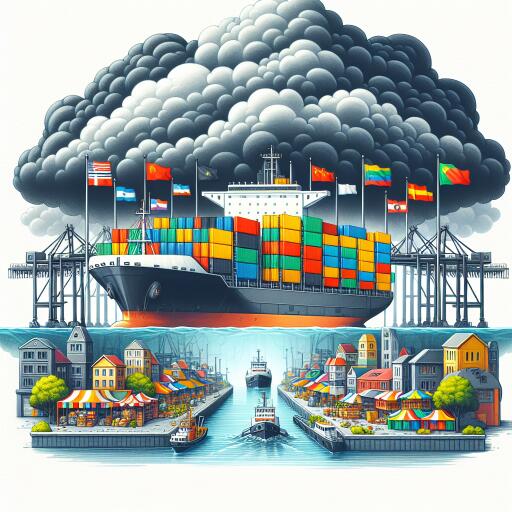Flood of Chinese Imports Could Renew Trade Tensions, Threaten U.S. Jobs
With Chinese factories ramping up production across a spectrum of goods, from automobiles and appliances to computer chips and electronics, there’s a looming prospect of renewed trade tensions between China and key economies such as the United States and Europe. The expansive output from China is now exceeding its domestic demands, leading to a decline in the prices of its goods. According to data from the Bureau of Labor Statistics, the cost of U.S. imports from China saw a decrease of 3.1 percent from the previous year as of February.
This development plays into the broader narrative of global trade dynamics, where the increase in Chinese factory output, noted at 7 percent in the first two months of the year over the same period in 2023, is not just a domestic matter but a potential flashpoint for international trade relations. This expansive growth in factory output is in part due to Beijing’s strategic investments in new factories to cater to the pandemic-induced demand spike from American consumers, and its ambitious moves to lead in high-tech industries such as electric vehicles and battery production.
Despite the potential relief these lower-priced imports could provide in the global fight against inflation, there’s considerable worry about the impact on American manufacturers. The influx of inexpensive Chinese imports threatens to undercut local manufacturing, potentially jeopardizing jobs in sectors that are pivotal to the national economic strategies of not just the U.S. but also other global players in Europe.
The rising dominance of China in the global manufacturing arena introduces significant tensions in trade relationships, especially with Europe and the U.S. For instance, the Chinese auto industry’s emergence as a formidable force on the global stage has set the stage for a direct competition with established auto manufacturers, particularly in Europe. With its capacity to produce 40 million cars annually, far exceeding domestic demand, China’s automotive exports are positioned to disrupt global markets.
Moreover, the potential oversaturation of markets with Chinese-made goods raises concerns about the strategic interests of other economies in maintaining their industrial and manufacturing bases. This situation is further complicated by allegations and investigations into China’s subsidization of its electric vehicle production, perceived as a threat to domestic industries in client nations.
In response to the burgeoning dominance of China’s manufacturing sector, there have been calls for investigations and potential trade actions, such as those taken by the United Steelworkers union regarding China’s shipbuilding industry. These moves reflect the broader anxiety about China’s global trade practices and the support it extends to its state-owned enterprises at a scale markedly different from the norm in other countries.
Amidst these developments, the advice from international bodies like the International Monetary Fund suggests that the solution to rebalancing China’s trade dynamics lies in boosting domestic consumption within China. However, with China intent on exporting its way out of domestic economic challenges, there’s little indication that such a shift is on the horizon.
As economies around the world navigate the complexities of global trade relations and domestic economic health, the role of Chinese manufacturing and exports remains a critical piece of the puzzle. The intertwined narratives of innovation, competition, and economic policy suggest a challenging but intriguing path ahead for international trade relations.
China’s ambition to be a global manufacturing leader has far-reaching implications, potentially impacting everything from global inflation rates to the competitive landscape of industries traditionally dominated by other nations. With the world grappling with the dual imperatives of economic recovery and strategic autonomy, the unfolding dynamics of China’s trade relationships will undoubtedly be a critical area of focus for policymakers, industries, and economies worldwide.
